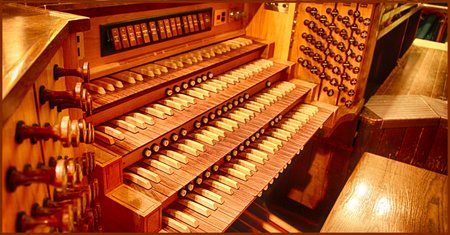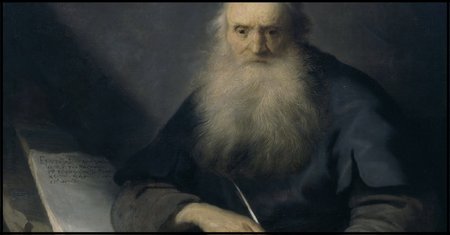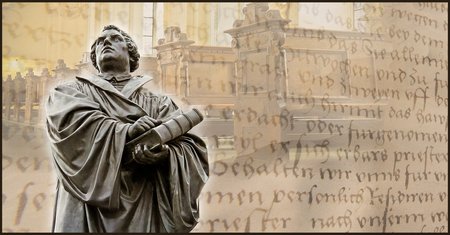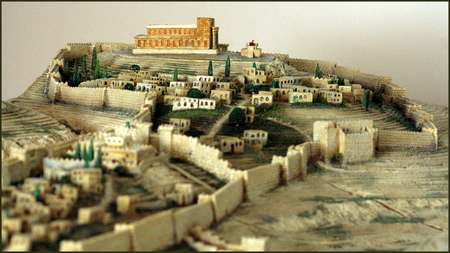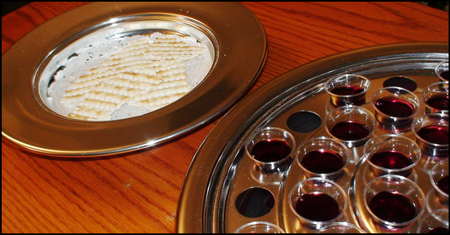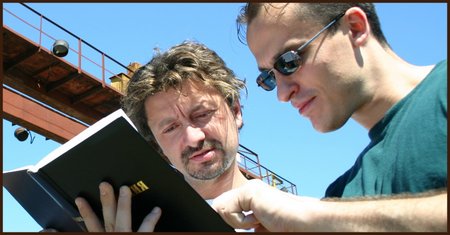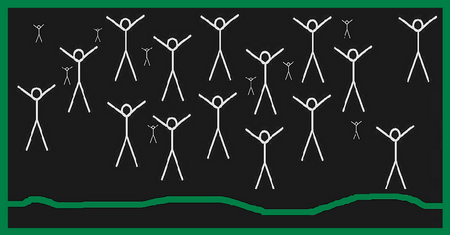Category: – The Patternists Articles
Articles written for The Patternists Facebook page
The Patternists: Instrumental Music in Worship
Our objection to the use of mechanical instruments of music in Christian worship is a simple one. No authority for the practice is found for it in the New Testament. We do not deny that is was present in the worship offered to God by the Jews under the Old Covenant. Nor do we deny that there is a reference to instruments in heaven, as found in the book of Revelation.
It is simply that Christian worship must follow the pattern that God has given for it! There is no command in the New Testament for Christians to worship Him with instruments. There is no example of Christians worshipping God with musical instruments. There is no intimation whatsoever in the New Testament that God either requires or accepts such worship to Him.
Continue reading “The Patternists: Instrumental Music in Worship” →
The Patternists: Paul – A Simple Apostle
Question: Who was the most educated apostle among Jesus’ chosen men? We know that Peter, Andrew, James and John were simple fishermen in Galilee. Matthew was a tax collector, typically indicating some business acumen. Little is known from scripture about the other seven men’s educational background.
An interesting statement is made about Peter and John after their arrest for teaching “in Jesus the resurrection from the dead” (Acts 4:2). Luke records Peter’s address to the Sanhedrin, and the response of the assembly, “Now when they saw the boldness of Peter and John, and perceived that they were uneducated and untrained men, they marveled. And they realized that they had been with Jesus” (4:13).
Continue reading “The Patternists: Paul – A Simple Apostle” →
The Patternists: Carrying the Ark
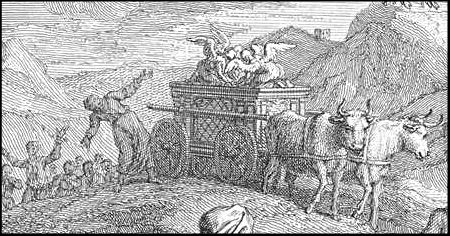
The ark of the covenant had a long history with Israel, serving as the point of interaction between God and the nation from the time the tabernacle was erected in the wilderness (cf. Exodus 40:17-21,34).
In the building of the ark, rings were set at each of its four corners, and poles of acacia wood, overlaid with gold were put into the rings, “to bear the ark.” (Exodus 37:3-5). After the establishment of the priesthood as found in the book of Leviticus, it fell upon the Levites to care for and bear the ark as the tabernacle was moved from place to place (Numbers 1:49-53; 3:31). The actual directions given concerning the packing and carrying of all the furniture in the tabernacle is revealed in Numbers 4, ending with these instructions, “And when Aaron and his sons have finished covering the sanctuary and all the furnishings of the sanctuary, when the camp is set to go, then the sons of Kohath shall come to carry them; but they shall not touch any holy thing, lest they die. These are the things in the tabernacle of meeting which the sons of Kohath are to carry” (15). The poles were inserted into the ark to allow it to be carried, without touching it or the holy things stored upon it. Not only was the Levite family of Kohath not to touch the ark, God told Moses, “But they shall not go in to watch while the holy things are being covered, lest they die” (20).
The Patternists: Reformation VS Restoration
The Reformation Movement is well known. The term refers to the efforts of men like Martin Luther, beginning in the 16th century, who sought to reform certain practices of the Catholic church. These men believed such practices were in violation of scripture. Interestingly, before being branded as heretical by the Catholic church, Luther was a priest in that organization. He wasn’t seeking to leave it, he simply wanted to make it better by making changes.
The term “reform” is defined as: “make changes in (something, typically a social, political, or economic institution or practice) in order to improve it.”
Continue reading “The Patternists: Reformation VS Restoration” →
The Patternists: David and the Temple
In 1 Chronicles 17:1, David showed a sincere heart in his desire to build a permanent Temple to honor God. “Now it came to pass, when David was dwelling in his house, that David said to Nathan the prophet, ‘See now, I dwell in a house of cedar, but the ark of the covenant of the Lord is under tent curtains.”
Interestingly, it seems that Nathan’s response to David was presumptuous. That is, it came from Nathan himself, rather than from God. Nathan said to David, “Do all that is in your heart, for God is with you” (17:2). Much of Nathan’s words were accurate. David was certainly a righteous king, and in general his reign was in accord with God’s purpose. However, it was wrong for Nathan to assume God would desire for David to build the temple.
The Patternists: Walking in the Light
In 1 John 1:7-9, John gives us a wonderful promise. “But if we walk in the light as He is in the light, we have fellowship with one another, and the blood of Jesus Christ His Son cleanses us from all sin. If we say that we have no sin, we deceive ourselves, and the truth is not in us. If we confess our sins, He is faithful and just to forgive us our sins and to cleanse us from all unrighteousness.”
Our question, since the promise is that God will cleanse us from all unrighteousness, is, “What does it mean to walk in the light?” John gives us some idea of that in his phrase, “as He is in the light.”
The Patternists: A Conditional Covenant
There are a number of agreements, or covenants which the Lord has entered into with mankind. Some of these covenants were unconditional. Some had conditions appended to them.
After God had destroyed the world with the flood, he placed a bow in the cloud, with the promise that he would never again destroy the world by water. No conditions were placed on this. It was God’s decision, regardless of man’s actions.
Continue reading “The Patternists: A Conditional Covenant” →
The Patternists: Lord’s Supper Observance – Frequency
Listening to a recent podcast by Donnie Rader, regarding the observance of the Lord’s Supper, I was struck by his explanation as to why the Supper is to be observed on the first day of every week.
He first noted that it is common for some religious groups to observe the Supper on a quarterly or annual basis, once a month or on special occasions. This is in contrast to what is revealed in scripture.
In Acts 20:7, the scripture states, “Now on the first day of the week, when the disciples came together to break bread, Paul, ready to depart the next day, spoke to them and continued his message until midnight.”
Continue reading “The Patternists: Lord’s Supper Observance – Frequency” →
The Patternists: Walk in Wisdom
“Walk in wisdom toward those who are outside, redeeming the time. 6 Let your speech always be with grace, seasoned with salt, that you may know how you ought to answer each one” (Colossians 4:5-6).
According to these words from Paul, (representative of many other passages that affirm the same), Christians have responsibilities regarding how we interact with those outside the body of Christ. Elsewhere Paul wrote, “that you may become blameless and harmless, children of God without fault in the midst of a crooked and perverse generation, among whom you shine as lights in the world” (Philippians 2:15). In our passage in Colossians, this passage instructs us in our speech.
The Patternists: The Bearer of Bad News
Jeroboam was rewarded by God with the 10 tribes which made up the northern kingdom of Israel. He became their king, according to the prophet Ahijah, because the reign of Solomon led to Israel forsaking Jehovah, and engaging in idolatry, cf. 1 Kings 11:29-39. His tenure as king was conditioned upon his obedience to God. The prophet Ahijah shared with Jeroboam these words from God, “Then it shall be, if you heed all that I command you, walk in my ways, do what is right in My sight, to keep My statutes and My commandments, as My servant David did, then I will be with you and build for you an enduring house, as I built for David, I will give Israel to you” (38).
Jeroboam responded to Jehovah’s gift of the northern kingdom by rebelling against Him. Just as Solomon led Israel into idolatry, Jeroboam encouraged the northern Kingdom he ruled to worship gold calves he had fashioned for them.
Continue reading “The Patternists: The Bearer of Bad News” →
The Patternists: The Model Prayer
Jesus taught his disciples how to pray in His sermon recorded in Matthew 5-6. The prayer is found in 6:9-13:
“In this manner, therefore, pray:
Our Father in heaven,
Hallowed be Your name.
Your kingdom come.
Your will be done
On earth as it is in heaven.
Give us this day our daily bread.
And forgive us our debts,
As we forgive our debtors.
And do not lead us into temptation,
But deliver us from the evil one.
For Yours is the kingdom and the power and the glory forever.
Amen.”
This prayer rather unfortunately has been designated as the Lord’s Prayer. I say unfortunately because it has become the practice of many to recite it as a prayer to God, rather than offering prayers “in this manner.”
The Patternists: “They Understood the Words”
The eighth chapter of Nehemiah is a wonderful narrative to help establish the importance of knowing and following the will of the Lord.
On this occasion, following the rebuilding and defense of the wall which had been erected to protect Jerusalem, the remnant of Judah (released from captivity), gathered together for a reading of the law. There were a number of times during Israel’s history where a renewal of the covenant between God and His people were made. It happened prior to Moses’ death in Moab (Deuteronomy 29). It happened again as Joshua neared his death (Joshua 24). When the lost law was found again during the reign of Josiah, he made the people commit to the covenant (2 Kings 23).
Continue reading “The Patternists: “They Understood the Words”” →
The Patternists: Solomon’s Heart Turns from the Lord
“But King Solomon loved many foreign women, as well as the daughter of Pharaoh: women of the Moabites, Ammonites, Edomites, Sidonians, and Hittites — from the nations of whom the Lord had said to the children of Israel, ‘You shall not intermarry with them, nor they with you. Surely they will turn away your hearts after their gods.’ Solomon clung to these in love.” (1 Kings 11:1-2).
This passage is one among several that should give pause to every Christian of marrying age. Love is a powerful thing. Over the years, I have witnessed many Christians who have had their hearts turned away from God because of matters of the heart.
Much discussion has been had regarding whether a Christian should marry a non-Christian. Is it a sin? Is it allowed? Is it best?
Continue reading “The Patternists: Solomon’s Heart Turns from the Lord” →
The Patternists: What is the Rapture?
The word rapture is used to describe a transformation of believers who will be taken from the earth prior to the millennial reign of Christ. It is a central tenet of Premillennial doctrine. It also is lacking in any scriptural basis.
The problem is not in the idea that at Christ’s second coming the righteous will meet HIm in the air. In fact, this truth is taught clearly in scripture. For example, in 1 Thessalonians 4:15-18:
“For this we say to you by the word of the Lord, that we who are alive and remain until the coming of the Lord will by no means precede those who are asleep. For the Lord Himself will descend from heaven with a shout, with the voice of an archangel, and with the trumpet of God. And the dead in Christ will rise first. Then we who are alive and remain shall be caught up together with them in the clouds to meet the Lord in the air. And thus we shall always be with the Lord. Therefore comfort one another with these words.”
The problem is that many seek to differentiate this event from the resurrection of the wicked to eternal condemnation. The Premillennial view is that the righteous will be snatched away, and the wicked will remain on the earth, to be judged at a later time. This is demonstrably untrue.
First, note the context of Paul’s words to the Thessalonians. His essay was an answer to a question they were asking. They wanted to know what would happen to those who die before Christ’s coming. “But I do not want you to be ignorant, brethren, concerning those who have fallen asleep, lest you sorrow as others who have no hope” (vs. 13).
There is no mention of the wicked in 1 Thessalonians 4 because the question directed to Paul regarded only the righteous. In that day, both the living and dead who are righteous will be caught up together in the air.
Jesus taught about His second coming in judgment in Matthew 25:31-46. There He clearly tells us that the granting of an eternal reward for the righteous will occur on the same occasion that God sentences the wicked to the “everlasting fire prepared for the devil and his angels” (vs. 41). His conclusion regarding the wicked, “And these will go away into everlasting punishment, but the righteous into eternal life.” The idea of the wicked being left behind, with tribulation, a physical reign, great battles and another coming of Jesus yet future, is found only in the imaginations of men.
This is clearly established by Peter, who also wrote about Jesus’ coming. Read 2 Peter 3:10-13:
“But the day of the Lord will come as a thief in the night, in which the heavens will pass away with a great noise, and the elements will melt with fervent heat; both the earth and the works that are in it will be burned up. Therefore, since all these things will be dissolved, what manner of persons ought you to be in holy conduct and godliness, looking for and hastening the coming of the day of God, because of which the heavens will be dissolved, being on fire, and the elements will melt with fervent heat? Nevertheless we, according to His promise, look for new heavens and a new earth in which righteousness dwells.”
The second coming of Christ is certainly a rapturous event for the righteous. However, the idea of a rapture as a separate event that takes place long before the ending of the physical universe is not true! When Christ comes, that will be the end! Rapture for the Christian. Grief for the wicked. Destruction for the physical universe. That is the event to which Paul refers in 1 Thessalonians 4.
To see The Patternists Page on Facebook, click here, and Like!
The Patternists: What is Profane Fire?
The question for our consideration is taken from Numbers chapter 3, when Aaron’s sons, Nadab and Abihu, lost their lives for disobeying God. “Nadab and Abihu had died before the Lord when they offered profane fire before the Lord in the Wilderness of Sinai…” (3:4). The full account is found in Leviticus 10:1-3.
Both these men, serving as priests, took their censers, put fire in them, and offered it up to the Lord. However, the Lord did not accept their sacrifice. “So fire went out from the Lord and devoured them, and they died before the Lord” (Leviticus 10:2).




